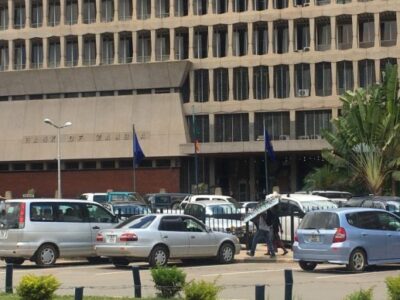The Zambia Institute of Policy Analysis and Research (ZIPAR) has linked the country’s recent fiscal woes and macroeconomic instabilities to weak monitoring and evaluation systems, opening doors for resource wastage and misappropriation.
ZIPAR Executive Director, Zali Chikuba, noted that a country could not attain sustainable development without strong Monitoring and Evaluation (M&E) systems in budgeting, financing, planning, procurement, development project implementation.
Chikuba said this in his presentation on ‘Development Finance Assessment for Zambia’ at the Economics Association of Zambia (EAZ) 2024 summit in Lusaka last week.
“Zambia’s recent fiscal woes and macroeconomic instabilities can be linked to its weak M&E systems, opening doors for resource wastage and misappropriation.
“Zambia has the regulatory and institutional arrangements for coordination of development planning and budgeting, albeit weak. The available governance structures and coordination mechanisms for national development planning can be strengthened and adapted to host the INFF,” he said.
Chikuba also pointed out that Information Communication Technology (ICT) systems for supporting M&E processes remained highly fragmented and inadequate.
He said M&E systems and capabilities remained weak and fragmented across Ministries, Provinces and other spending agencies (MPSAs) and development partners.
“This problem is more pronounced when it comes to tracking of financial flows and progress on the implementation of development programmes. M&E has not been adequately planned and budgeted for in prior budgets, contributing to low M&E capabilities in key institutions.
“Paucity of disaggregated data for M&E processes, contributing to weak monitoring systems,” Chikuba said.
Meanwhile, Chikuba said Zambia would continue to rely on income tax and Value Added Tax (VAT) for its development financing over the next eight years (2022-2030).
He said income taxes accounted for 10.9 percent of the Gross Domestic Product (GDP), compared to 6.1 percent for VAT.
“Since the mining sector is a significant contributor to these taxes, realising these revenues will hinge on the performance of the sector. Thus, the stability of the mining fiscal regime and assurance of enabling business climate will be crucial for securing fiscal sustainability.
“However, VAT is projected to become a significant contributor to the tax revenue over the next eight years, averaging 6.9 percent of GDP from 2022-2030,” Chikuba noted.
WARNING! All rights reserved. This material, and other digital content on this website, may not be reproduced, published, broadcast, rewritten or redistributed in whole or in part without prior express permission from ZAMBIA MONITOR.












Comments